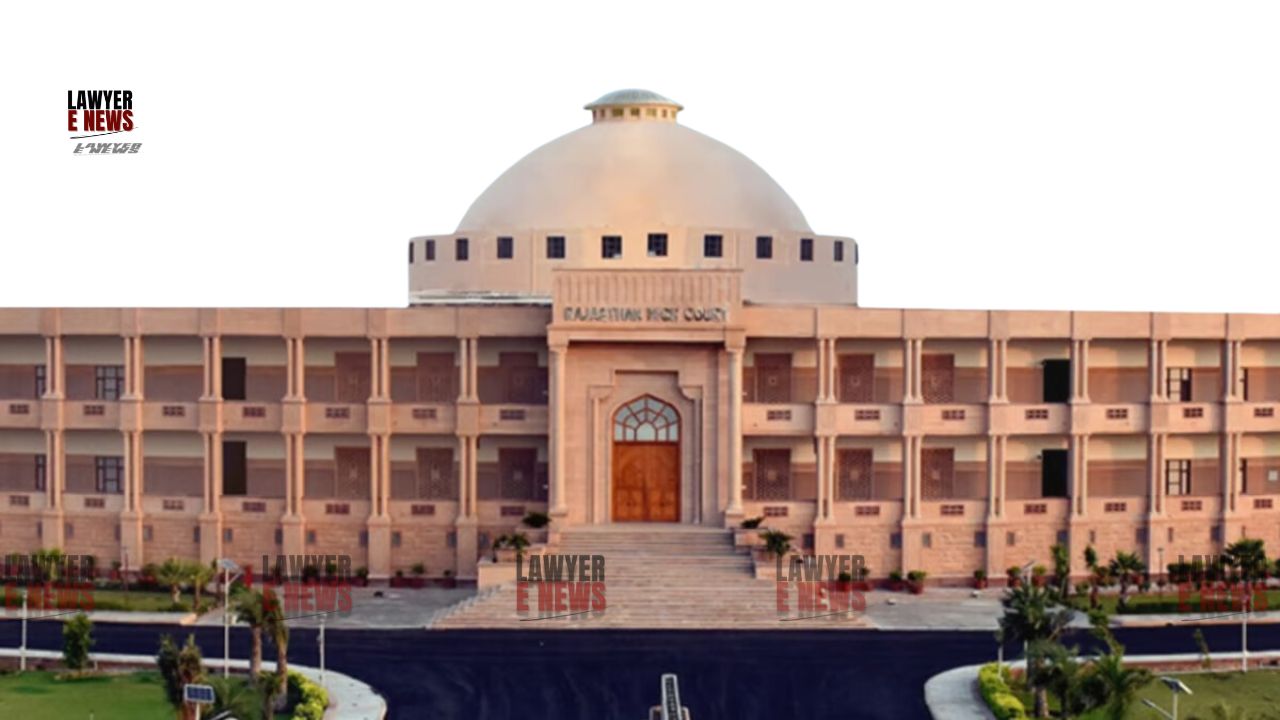-
by Admin
15 February 2026 5:01 PM



In a landmark decision, the Rajasthan High Court has directed the police authorities to provide enhanced protection to an inter-caste married couple facing threats to their safety. The court’s judgment, delivered by Justice Sameer Jain, stressed the constitutional duty of the state to safeguard the life and liberty of individuals exercising their right to marry out of their free will, despite societal opposition. The ruling also highlighted systemic issues within police accountability mechanisms, calling for reforms to ensure the protection of constitutional rights.
The petitioners, Suman Meena and Rinku Kumar Meena, both adults, married on March 1, 2024, against the wishes of Suman’s family, who perceived the marriage as a threat to their social standing. Following the marriage, the couple faced severe threats and harassment from Suman’s family members, prompting them to seek police protection. Despite filing a representation highlighting the threats on the same day of their marriage, the police authorities did not take adequate measures to ensure their safety, compelling them to approach the High Court.
Justice Jain emphasized the constitutional guarantees under Articles 14 and 21, which protect the right to life and personal liberty, including the right to marry a person of one’s choice. The judgment referenced landmark Supreme Court rulings in Lata Singh v. State of UP and Shakti Vahini v. Union of India, affirming that any form of extra-legal harassment or violence against individuals for exercising their marital autonomy is unconstitutional. “The choice of an individual is an inextricable part of dignity, and any infringement of this right is a constitutional violation,” the court stated.
The court criticized the police authorities for failing to act on the couple’s representation and highlighted the need for an effective and accountable police system to protect individuals from extra-legal threats. The judgment pointed out that the existing mechanisms under the Rajasthan Police Act, 2007, particularly the Police Accountability Committees, are inadequate and diluted compared to the Supreme Court’s directives in Prakash Singh v. Union of India. Justice Jain noted that the lack of a robust accountability mechanism allowed external influences and societal norms to undermine the protection of constitutional rights.
The judgment called for systemic reforms to ensure police accountability and the protection of constitutional rights. It recommended the establishment of an online system for filing representations, assigning the responsibility of deciding on such representations to authorities other than the police, and creating shelter homes for couples facing threats. The court also suggested aligning the composition and selection process of Police Accountability Committees with the Supreme Court’s guidelines to ensure independence and effectiveness.
Justice Jain remarked, “The constitutional duty of the state and its instrumentalities to ensure appropriate laws and policies are enacted and implemented to respect, protect, and promote the autonomy of individuals is paramount. This duty is not merely statutory but a reflection of the values enshrined in our Constitution.”
The High Court’s judgment underscores the importance of upholding the constitutional rights of individuals against societal norms and extra-legal threats. By directing the police to provide enhanced protection to the petitioners and calling for systemic reforms, the judgment aims to fortify the legal framework ensuring the safety and autonomy of individuals. This landmark decision is expected to influence future cases, reinforcing the judiciary’s commitment to protecting personal liberty and dignity.
Date of Decision: August 2, 2024
Suman Meena & Rinku Kumar Meena v. State of Rajasthan
